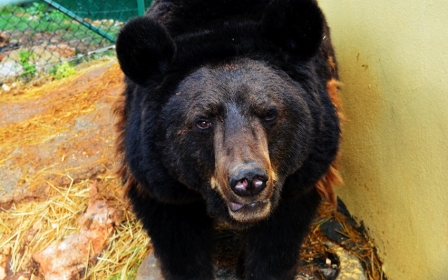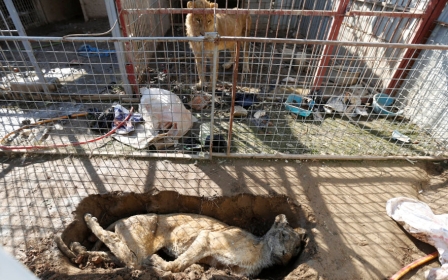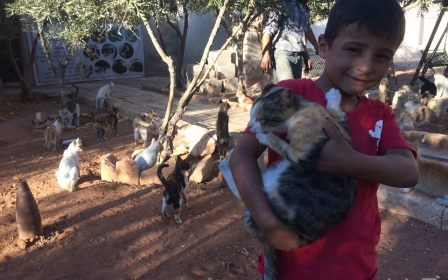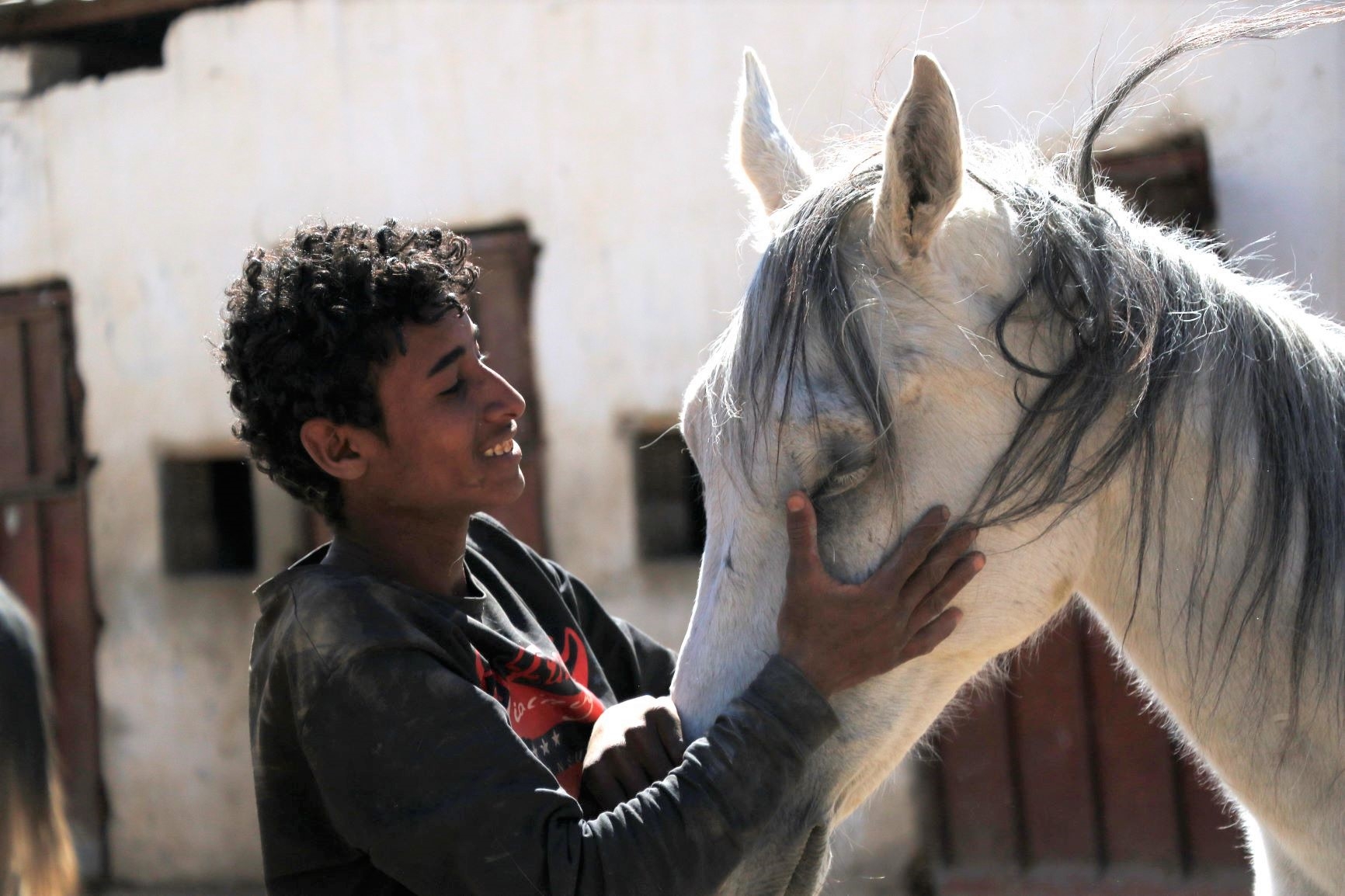
Battle to save Yemen's kings of the desert: Sanaa’s Arabian horses abandoned by war
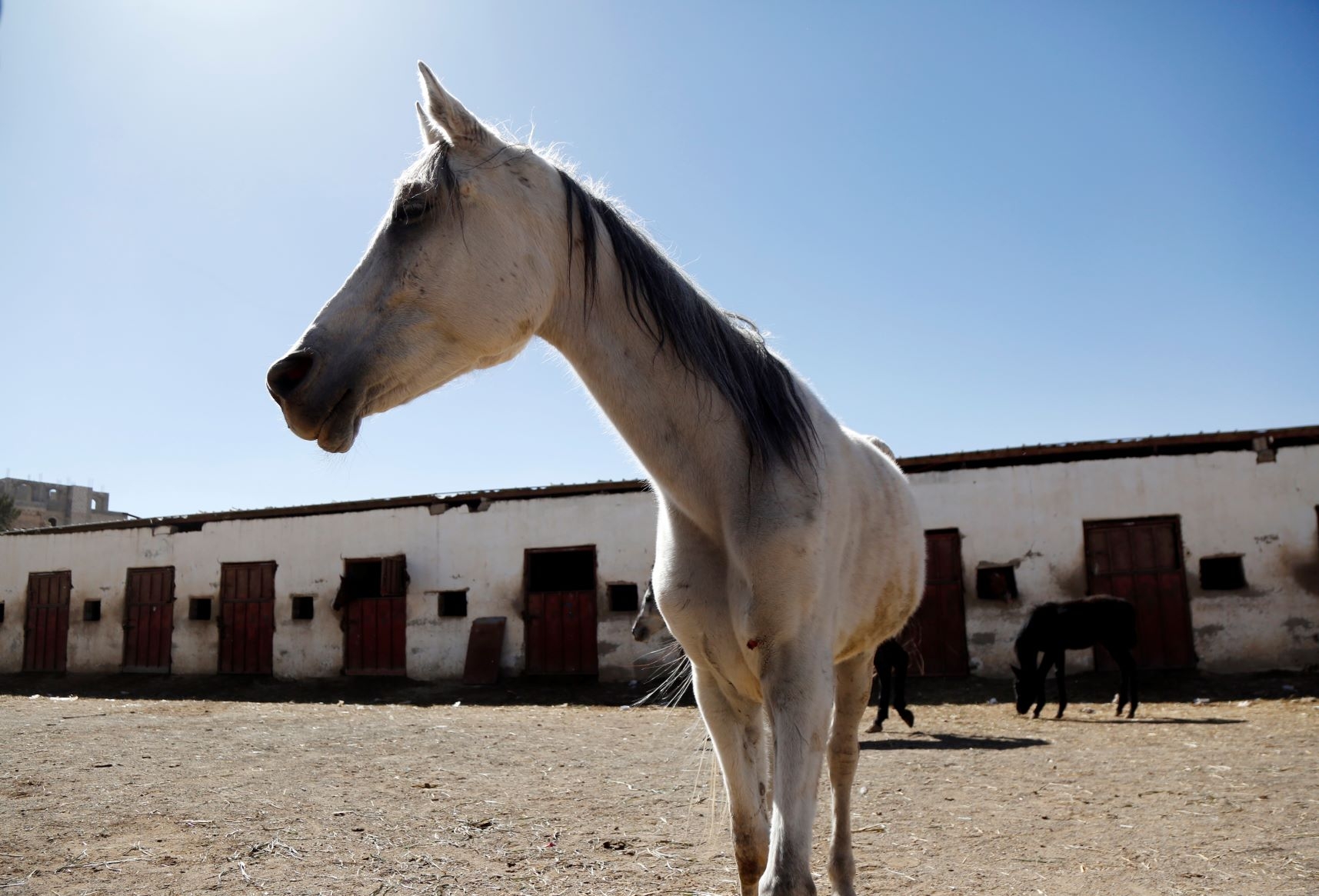
For millennia, the Arabian horse has been an object of adoration and devotion among the Bedouin people and even urbanised Arabs. The pre-Islamic Bedouin poet, Imru al-Qais, praises its wolf-like gallop, the Quran describes the animal as an adornment, and the medieval North African writer Ibn Rashiq calls the foaling of a mare an occasion on which Arabs would congratulate one another, alongside the birth of a son and the emergence of a poet amongst them.
Domesticated around eight thousand years ago, the animals are known for their intelligence, grace, calm temperament and striking beauty. “And Allah took a handful of southerly wind, blew His breath over it, and created the horse,” or so a saying attributed to the ancient Bedouin goes. Today, a typical thoroughbred can cost as much as $US300,000, yet there is one corner of the Arabian peninsula where the animals live on the brink, kept alive only by the dedication of their trainers. (All pictures: Mohammed Hamoud/MEE)
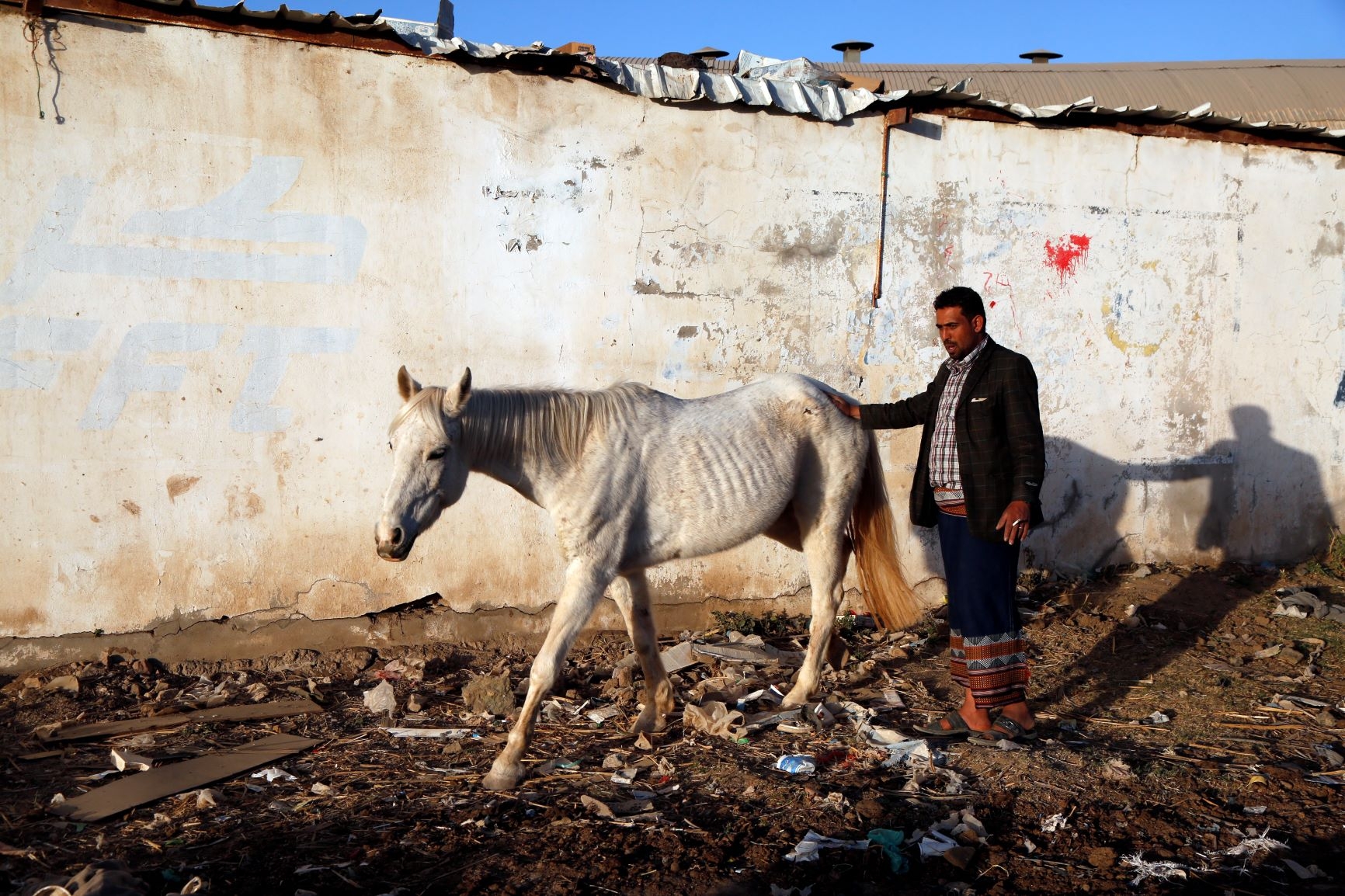
In Yemen, six years of war between the Houthi movement and a Saudi-led coalition has left the country in the midst of a humanitarian disaster, and animals are low on the list of priorities. “Most days the horses get no breakfast and have to wait until noon for their only meal of the day,” says Mohamed al-Tawil, who works at the equestrian club in the capital, Sanaa. Tawil and 17 of his colleagues have worked seven months without salaries, choosing not to abandon their horses. They nevertheless face an uphill battle to keep them alive and healthy.
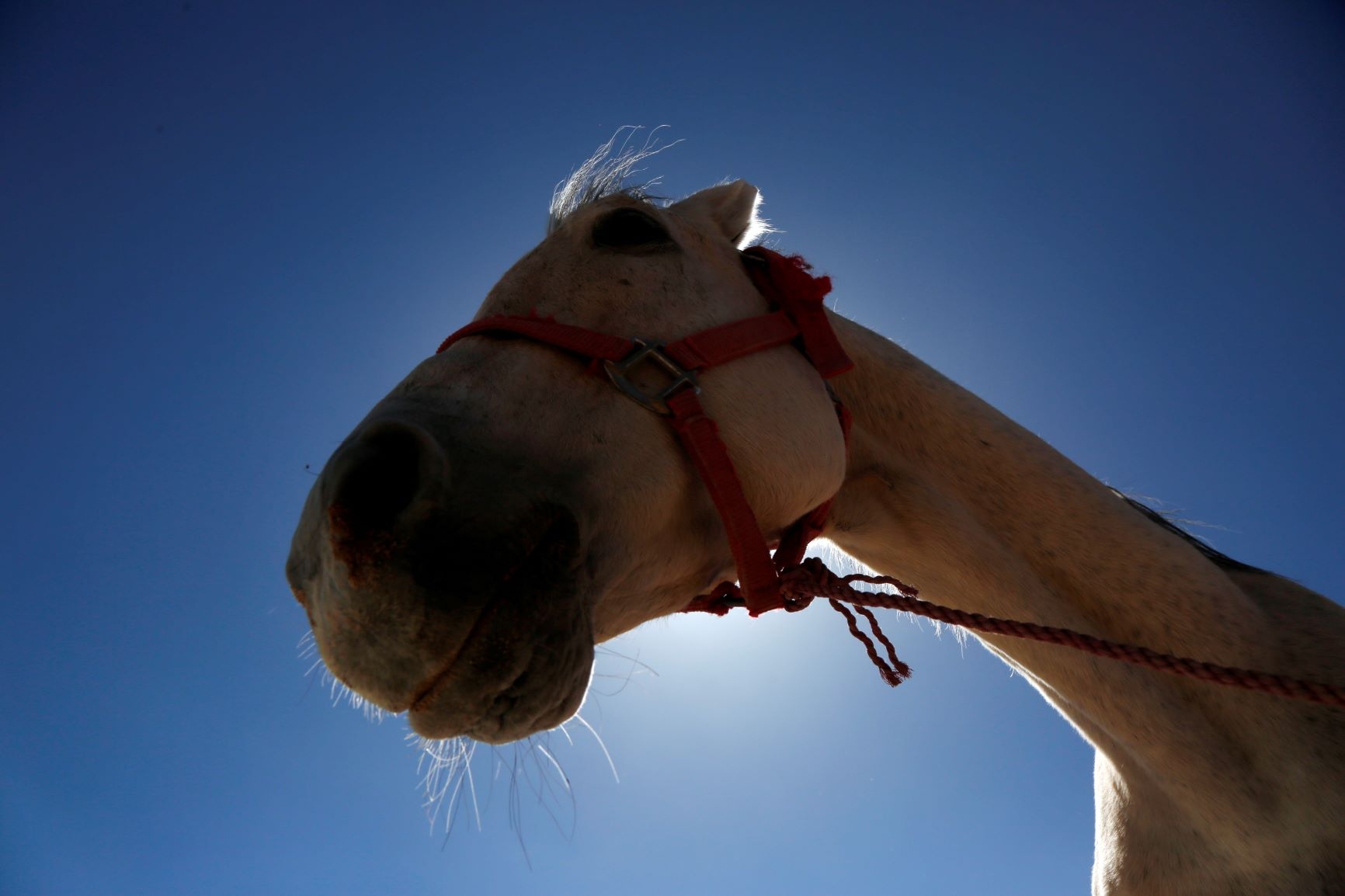
“More than 50 horses have died, including 13 in the past three months,” says Mohammad al-Qumali, the manager of the equestrian club. He blames the deaths on Saudi air strikes, the consequences of poor heating because of fuel shortages, and illness brought on by malnutrition. The club, which was established in 2000, was once a playground for Yemen’s elite, a place where they could indulge in one of the most glamorous traditions in Arab culture: riding the Arabian horse. The ongoing war, however, has forced many of the country’s rich to safer pastures, taking their membership fees with them and thereby leaving the horses to their fate. Qumali’s struggle is further compounded by the economic collapse brought on by the war, which means even those members of the club still in Sanaa cannot afford to pay their dues.
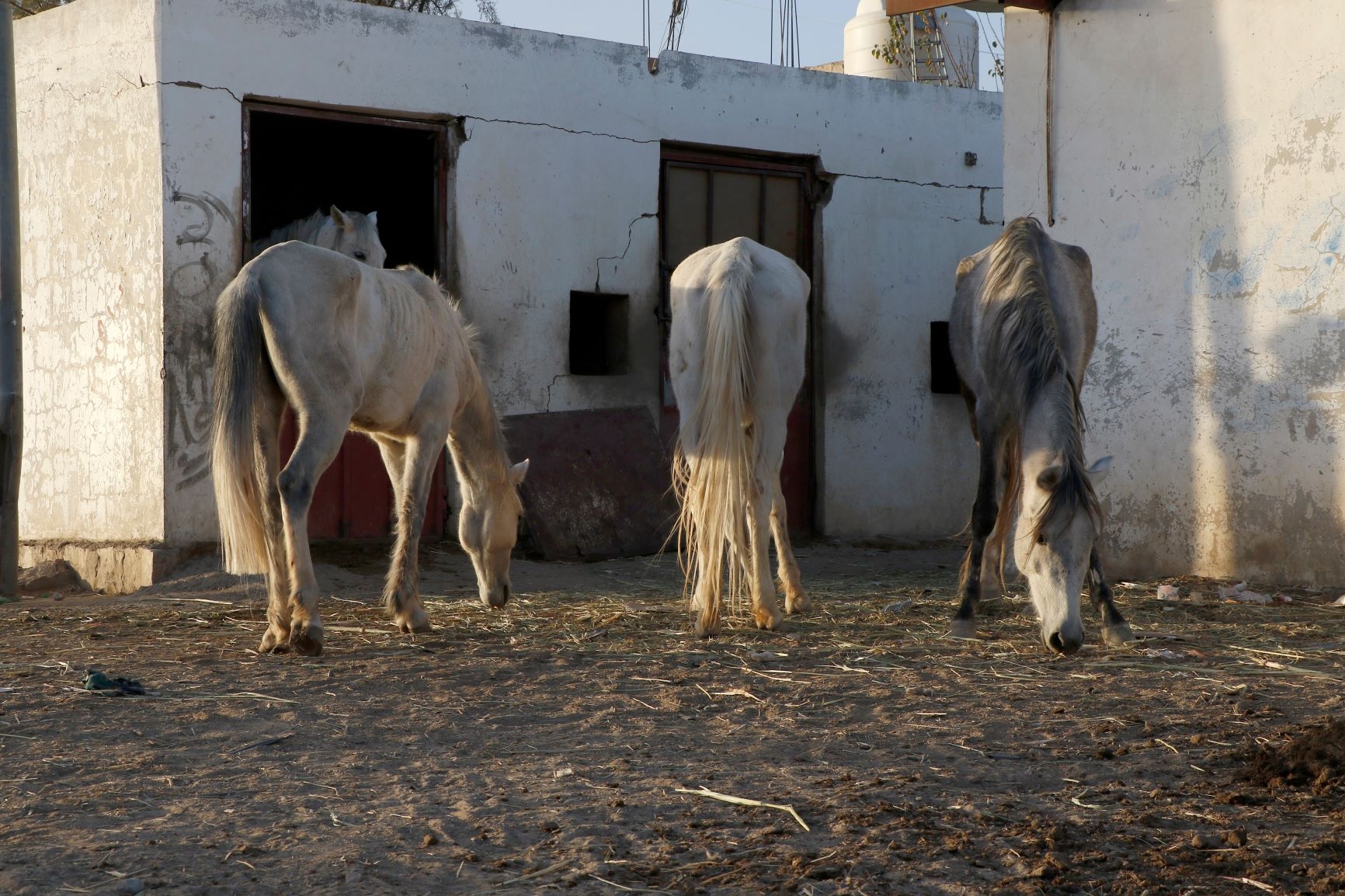
What little income the club received from visitors has also dried up because of a dispute with the owner of the site on which the club is located. The landowner shuttered the gates to the club in mid-2020 over a rental dispute and ever since locals have been unable to visit the horses, thereby depriving their carers of a much needed stream of income. Without money, Qumali and his colleagues cannot afford to keep animals well fed, nor do they have enough to buy medicine to treat illnesseses among them.

In a breed otherwise known for its endurance and athleticism, Sanaa’s Arabian horses can ill afford to exert themselves due to their poor diet and health. They and their carers have little to look forward to but finding a new home after the landowner issued a notice for the club’s eviction. Qumali’s prognosis is therefore very pessimistic and he sees no way out for the animals without intervention from a benefactor. He says: “If any group or person wants to buy or sponsor any of the horses, we can give them away freely, but we need a commitment that they will not sell them or let them go hungry or without medicine.” However, in the midst of the conflict, that may be a big ask.
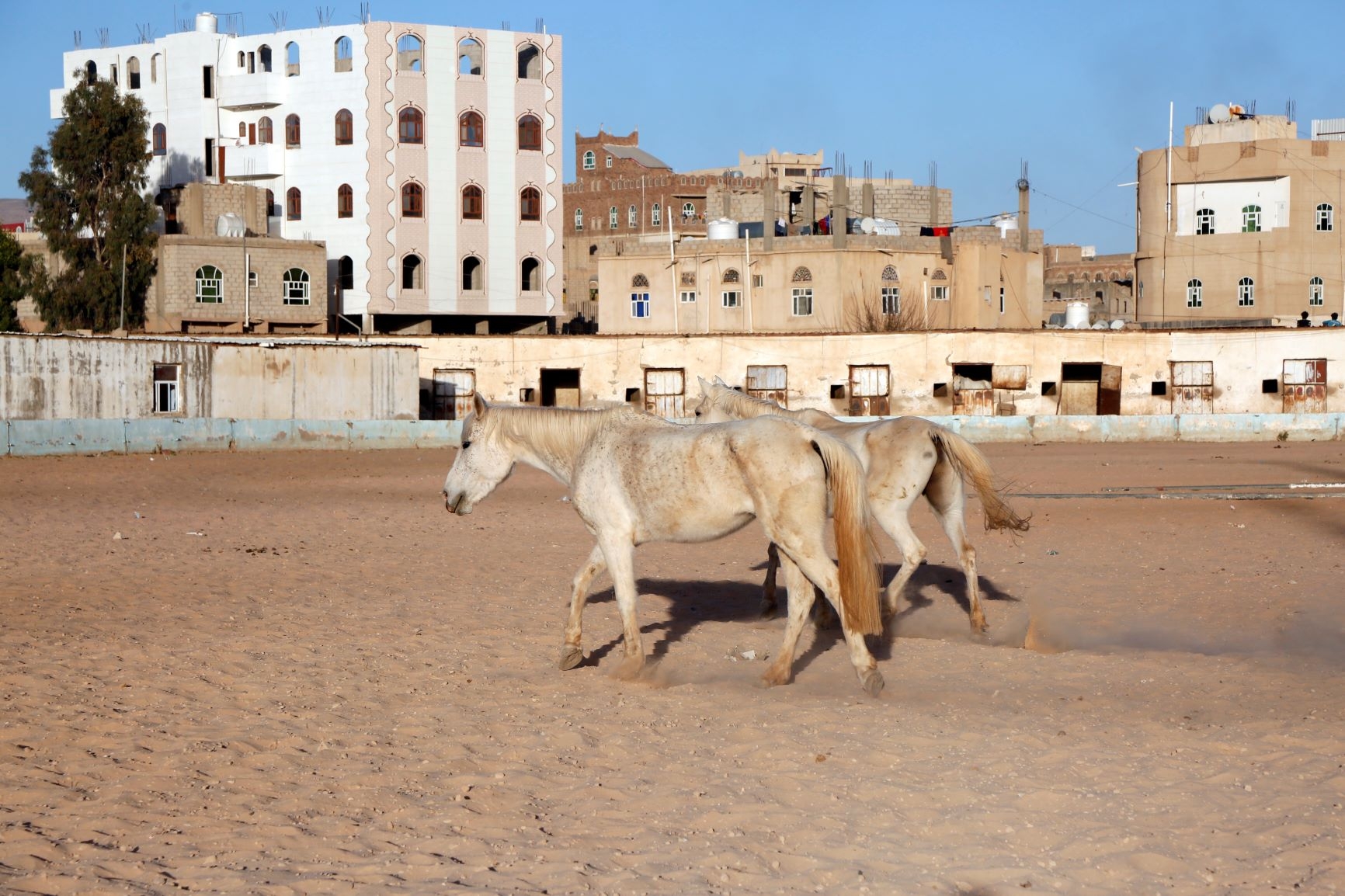
Saudi Arabia and its allies have subjected Houthi-held territory, which includes most of the country’s north, to a years'-long air, sea and land blockade. The conflict has deprived millions of secure food supplies, medicine, and the ability to travel in and out of the country unimpeded. The UN has warned for years that the country is on the brink of famine and estimates of how many children have died of starvation exceeded 85,000, as of November 2018.
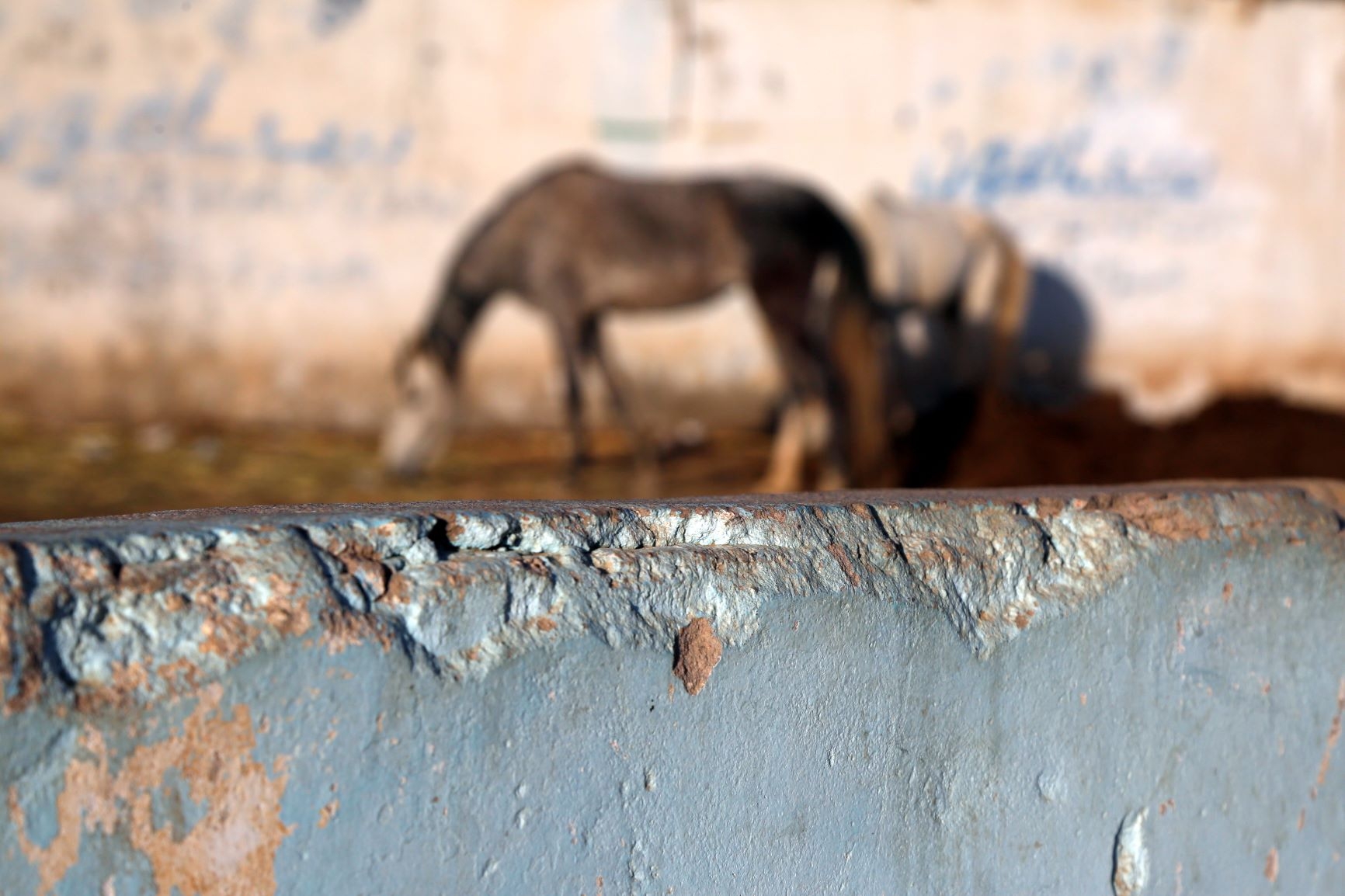
US President Joe Biden's recent decision to restrict US arm sales to the Saudis has raised hopes that he could be moving to bring an end to the war, but whether such hopes will materialise and how long it will take for there to be changes on the ground, remain an unknown. That uncertainty means there is little else for Qumali to do but to take stock of his losses. "We have many horses that died due to simple diseases,” he says. “Including horses from the best Arab breeds.”
This article is available in French on Middle East Eye French edition.
Middle East Eye delivers independent and unrivalled coverage and analysis of the Middle East, North Africa and beyond. To learn more about republishing this content and the associated fees, please fill out this form. More about MEE can be found here.


